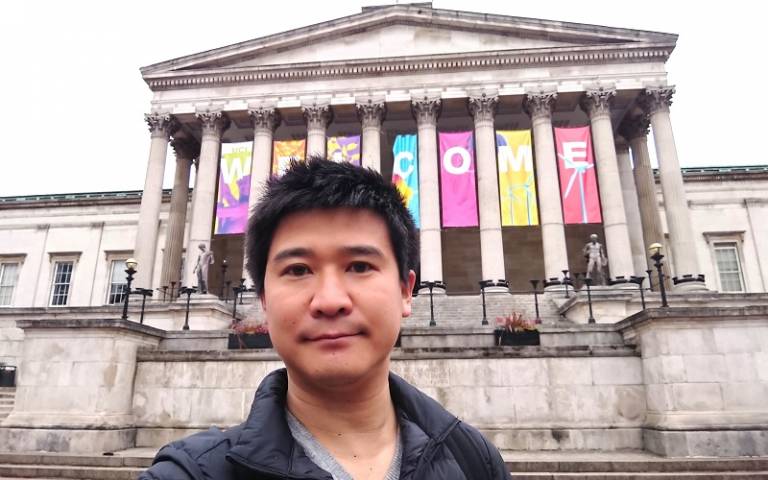IOE student wins prestigious education award
8 November 2021
UCL Institute of Education (IOE) student Seido Iga (Teaching English to Speakers of Other Languages In-Service MA) has won first prize in the Yomiuri education award 2021 in Japan.

Seido received the honour for his report that looked at his six years of ICT-based teaching at secondary school. This focused on long-term projects for self-expression and dictogloss, a technique that helps students learn about grammatical structures that expose authentic listening materials to learners, who then try to reconstruct the text, focusing on key elements of the passage.
Seido used materials including English Haiku, thank you cards, creative writing essays and public speaking to help students improve their learning of reading, listening, writing and speaking in an integrated way.
The Yomiuri Kyoiku Sho (education prize) was established in 1952 to recognise educators and organisations that actively engage in research or teaching in primary and secondary schools and kindergarten and nursery environments.
Seido Iga said: I am honoured to receive this award and pleased that my pedagogical approach was positively recognised. Having said that, just because I have received such a prestigious award does not mean the methods I applied will work in every school setting. Every educator has their unique strengths, which students find valuable.
“Teachers should always seek appropriate, authentic, and cutting-edge methods for students' productive learning. Without getting out of their comfort zone, students may not appreciate many kinds of teaching as well as cultural diversity in the world today. I hope my teaching approach will be considered just a stepping stone to their teaching success.
“Last but not least, I would like to express sincere gratitude for support to my family, lovely students, teaching staff at Koyo Gakuin in Japan, and those at UCL.”
Dr Talia Isaacs, Seido’s personal tutor and programme leader for the TESOL In-Service MA, said: “We are thrilled that Seido has won this prestigious award for his work on integrating novel methods to enhance pedagogical practice for English language learners in secondary school. It showcases the level of talent within the student body in our TESOL In-Service MA programme in designing and implementing novel pedagogical applications.
“Seido’s instructional activities collectively integrate a focus on the four skills of speaking, listening, reading and writing while fostering student creativity, notably also in a way that draws on Japanese literary traditions.
“Our programme seeks to build on and fuse in-service teachers’ vast professional experience with theoretical foundations and empirical findings, including in relation to materials development and evaluation, to encourage principled student engagement in learning processes and appraisals of pedagogical interventions.”
Links
- Teaching English to Speakers of Other Languages (TESOL) In-Service MA
- Centre for Applied Linguistics
- Department of Culture, Communication and Media
- Find out more about the Yomiuri Kyoiku Sho
 Close
Close

